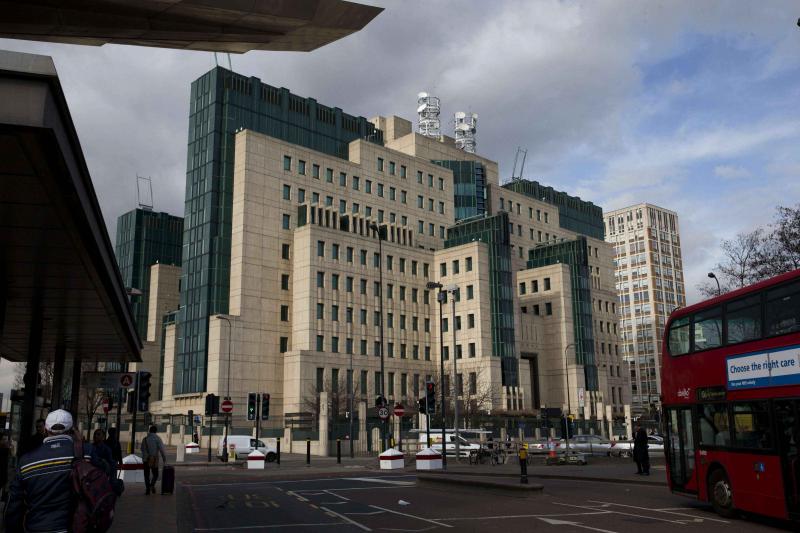The saga of Matthew Hedges, the British doctoral researcher accused by the United Arab Emirates of being a spy, sentenced to life in prison but then pardoned, raises several interesting issues. But that is if you eschew the usual, somewhat exaggerated, definitions of what espionage is, who does it and how it really works.
Despite the glamorous popular images of dead drops, car chases, ejector seats, pop-out gun barrels and high-stakes attempts to steal state secrets, spies are rarely so colourful nor are their lives as exciting as that of 007.
Sometimes it’s not even possible to define who is a spy. Is it someone who formally works for a country’s intelligence service? What about academics who know that their research and analysis and any papers they present at conferences will indirectly help their country’s intelligence agency?
In his 2017 book “Spy Schools: How the CIA, FBI, and Foreign Intelligence Secretly Exploit America’s Universities,” Daniel Golden quotes Indiana University political scientist Sumit Ganguly on engaging with US government agencies. Ganguly describes his willingness to attend conferences organised by Centra, which in spy terminology would be called a CIA “cutout” or intermediary.
“Anybody who works with Centra knows they’re in effect working for the US government,” Ganguly said. “If it said CIA, there are others who would fret about it. I make no bones about it to my colleagues. If it sticks in their craw, it’s their tough luck. I am an American citizen. I feel I should proffer the best possible advice to my government.”
That does not make Ganguly a spy. Far from it, considering he’s manifestly unwilling to be reticent about his views. However, his remarks point to something that has been whispered about for years. Golden calls it the “tenuous alliance of spies and scholars,” especially in post-9/11 America.
In the United Kingdom and other European countries, too, fears about jihadist terrorism and the often-advertised Chinese threat to sensitive research intellectual property have made some academics more amenable to sharing news and views with security agencies.
There is a basic logic in this and it lies in the perception of social good, especially in an age that lacks the supposed moral certainties of the Cold War. It can be hard for an academic to turn down an invitation to help national interest when all it takes is the simple act of vouchsafing an informed opinion about a region, culture or trend they have studied for years.
This is the context of developments of the past two decades when jihadist radicalisation began to be perceived as a threat on British campuses. Some years ago, Britain decided to set up the equivalent of the US National Security Higher Education Advisory Board, which fosters dialogue between intelligence agencies and universities. The UK body was meant to bring together representatives from the umbrella organisation Universities UK and senior members of the security services.
Some British academics cried foul but powerful voices in the research community have spoken out in favour of helping intelligence services without compromising academic independence or rigorousness.
Earlier this year, Anthony Glees, director of the Centre for Security and Intelligence Studies at the University of Buckingham, argued that it was right and proper for an academic to “help one’s own country” by responding to security services’ request to be put in contact with students with the particular kinds of expertise. He meant international students, people who, Glees said, “came from a country with an odious regime and who really wanted to come and live in the UK permanently or who wanted to overthrow the odious regime.”
In any case, spy agencies in the United Kingdom have long recruited from Oxbridge students. Oxbridge looms large in fictional spy stories too. John Le Carre’s fictional MI5 chief George Smiley is a bookish, decidedly not dashing man with an interest in baroque German literature and an Oxford degree. One theory posits that Smiley was based on an eccentric Oxford don named Vivian Green, who wrote a bestselling textbook on European history.
Nearly a decade ago, MI5, the United Kingdom’s domestic counter-intelligence agency, began inviting applications from Cambridge more openly than before, mainly in hopes of widening the pool to people of Middle Eastern and Chinese backgrounds. MI6, the more covert and more appropriately named Secret Intelligence Service, has been rather more mysterious about how it spots and signs on talent.
It’s reasonable to assume MI6 does at least as much, if not more, than rival foreign agencies. It would be overly credulous to believe that only the Chinese, the Russians and some other alleged bad actors send spies masquerading as trainee academics to the United States and other Western countries.
In 2011, the US Department of Defence issued a report that noted attempts by East Asian countries, including China, to obtain classified or proprietary information by “academic solicitation,” such as requests to review academic papers or study with professors. It said that such requests had jumped eightfold in 2010 from a year earlier. It added that similar requests from the Middle East had doubled in the same period.
Intelligence agencies around the world play much the same games, some with rather more finesse than others at certain times.


